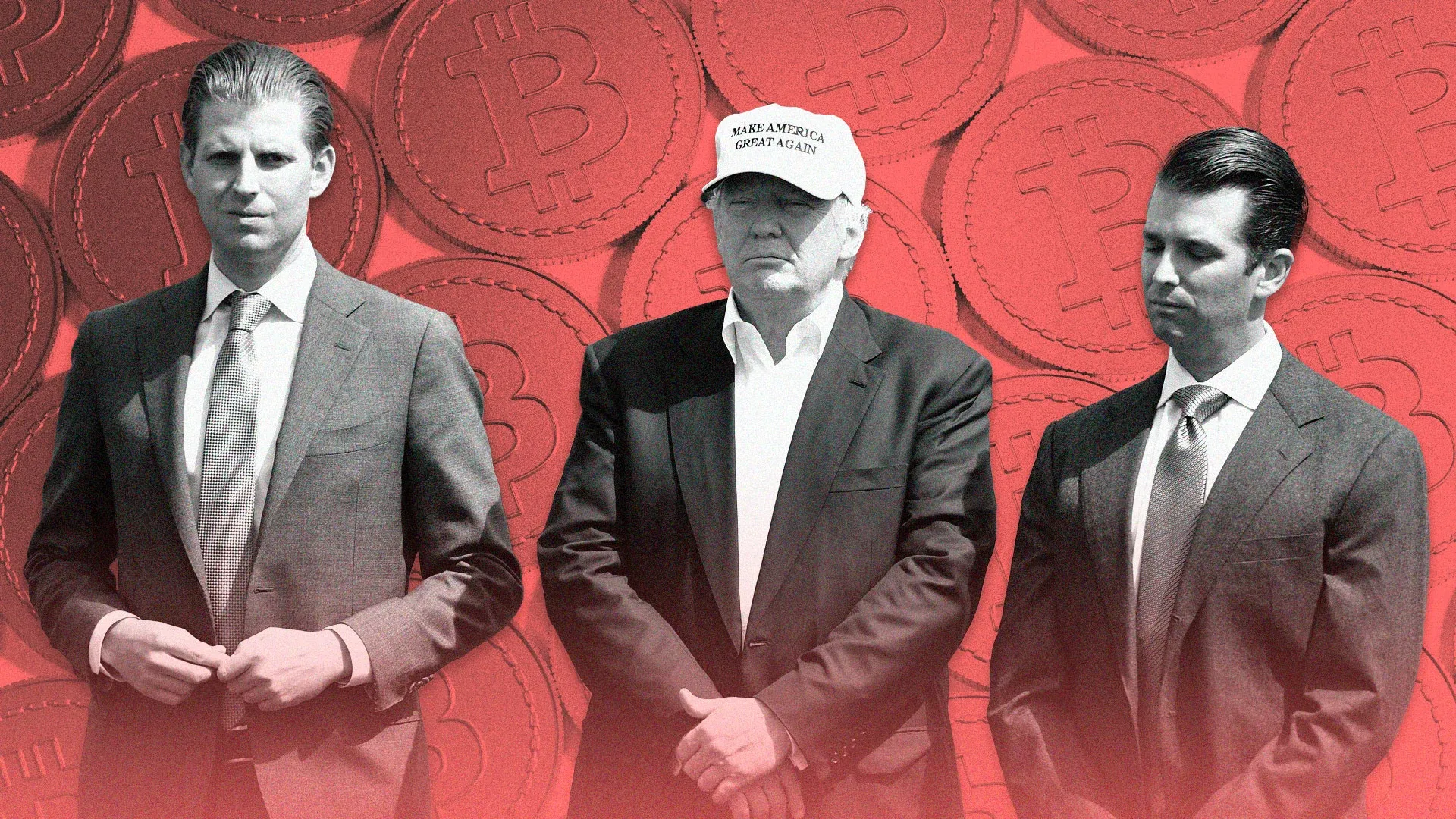Trump Family Crypto Advocacy Meets Irony in Roger Ver Case

Donald Trump Jr. and Eric Trump have emerged as vocal supporters of Bitcoin and cryptocurrency, channeling their enthusiasm into business ventures that capitalize on the growing digital asset space. Their involvement in World Liberty Financial, co-founded in 2024, has already generated significant revenue for the family, with reports indicating earnings around $412.5 million from the project. This aligns closely with President Donald Trump’s administration, which has implemented policies to foster a more favorable environment for crypto in the United States. Key moves include the signing of the GENIUS Act on July 18, 2025, which establishes federal regulations for stablecoins to ensure their stability and promote wider adoption. Additionally, the disbanding of the National Cryptocurrency Enforcement Team in April 2025 marks a departure from previous enforcement-heavy approaches, aiming to reduce restrictions on the industry.
This pro-crypto shift under the Trump administration reflects a broader goal to position America as a leader in digital finance, with executive orders supporting blockchain technology and even establishing a Strategic Bitcoin Reserve. The family’s ventures, including recent announcements of a $1.5 billion deal for World Liberty Financial, underscore their commitment to mainstreaming crypto through decentralized platforms powered by stable assets. President Trump’s vision to make the United States the crypto capital of the world has resonated with investors, drawing in high-profile figures and boosting market confidence. Yet, this narrative faces a stark contrast in the form of Roger Ver’s ongoing legal troubles, highlighting potential inconsistencies in the administration’s approach.
Roger Ver, an early Bitcoin advocate often called Bitcoin Jesus for his role in promoting the cryptocurrency, remains entangled in a tax evasion and mail fraud case that could result in a lengthy prison sentence. Arrested in Spain in April 2024, Ver is fighting extradition to the United States, where the Department of Justice alleges he caused a $48 million loss to the IRS through unreported gains from Bitcoin sales. As of mid-2025, Ver has sued Spanish authorities to block the extradition and has publicly sought assistance from President Trump, including hopes for a pardon. His case, initiated under the previous Biden administration, persists despite the current Trump pro-crypto policy changes, raising questions about the full extent of the Trump family’s influence in reshaping crypto enforcement.
I don't get it @DonaldJTrumpJr @EricTrump, you say that Bitcoin and crypto are the future, but you continue to ignore one of the people who helped bring Bitcoin and crypto to the forefront, and who is being hunted by the Biden-era DOJ. Roger Ver is currently being extradited from… pic.twitter.com/euwDnMkjlp
— DΛVID (@DavidShares) August 4, 2025
Exploring the Disconnect
The Trump sons’ public silence on Ver’s situation stands out, especially given their active promotion of crypto initiatives. Searches of their social media activity reveal no mentions of Ver or his case, suggesting a deliberate avoidance amid their advocacy efforts. This lack of engagement could stem from legal and political constraints, as intervening in an ongoing case tied to prior actions might invite accusations of favoritism or inconsistency in law enforcement. The administration’s memo narrowing crypto investigations to major crimes has not halted Ver’s prosecution, likely because it predates the policy overhaul.
Ver’s reputation within the crypto community adds another layer of complexity to the situation. While he played a major role in Bitcoin’s early growth, investing heavily and advocating for its use, his support for alternative projects like Bitcoin Cash has divided opinions, with some viewing him as a promoter of less favored projects. This controversy, combined with his decision to renounce U.S. citizenship in 2014, may not fit neatly into the Trump family’s focus on American-centric crypto development. Their ventures emphasize national benefits, such as tying digital assets to energy independence and appealing to conservative investors.
Strategic priorities also appear to influence the family’s approach, as they prioritize profitable, mainstream projects over individual cases that carry risks. World Liberty Financial’s recent $1.5 billion fundraising highlights a drive toward broad adoption and financial gains, rather than entanglement in polarizing figures. Ver’s libertarian views and history of disputes could complicate this branding, potentially deterring partnerships. Despite his significant holdings, including possibly over 131,000 Bitcoins, his case underscores regulatory gaps that early adopters have had to traverse.
The persistence of Ver’s prosecution amid the administration’s reforms points to challenges in fully transitioning from past enforcement strategies. While the GENIUS Act and other measures aim to legitimize stablecoins and reduce prosecutions, cases like this one reveal the limits of executive influence on judicial processes. Ver’s contributions to crypto’s foundation, including investments that helped build the ecosystem, make his situation a focal point for people questioning policy consistency. As the administration pushes forward with initiatives like the digital asset stockpile, the handling of such legacy cases will test its commitment.
This scenario presents a moral and strategic dilemma for the Trump family and the broader crypto community. Advocating for Ver could reinforce their pro-crypto credentials by symbolizing a break from aggressive enforcement, but it risks associating with a figure whose past actions can be viewed as polarizing. Their choice to remain silent may protect their ventures, yet it prompts discussions on whether true leadership in crypto requires addressing cases that embody the industry’s early struggles and it’s true ethos. As President Trump continues to champion America as a crypto hub, the resolution of Ver’s extradition battle could influence perceptions of the administration’s dedication to supporting all facets of the space.

